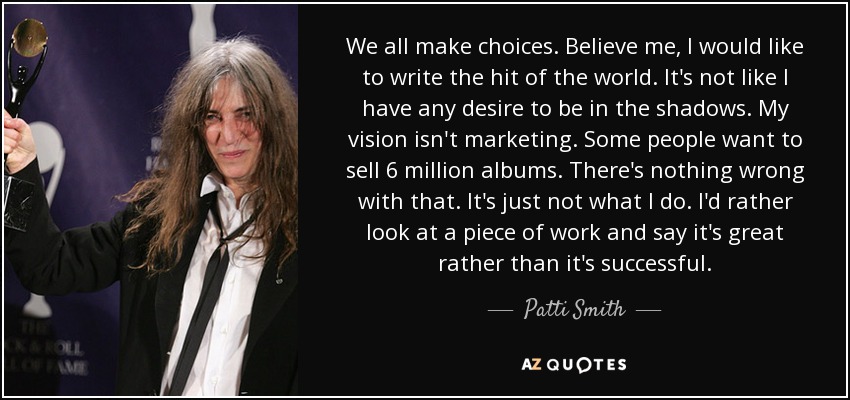Marketing Quotes - Page 34
-
-
 We all make choices. Believe me, I would like to write the hit of the world. It's not like I have any desire to be in the shadows. My vision isn't marketing. Some people want to sell 6 million albums. There's nothing wrong with that. It's just not what I do. I'd rather look at a piece of work and say it's great rather than it's successful.
We all make choices. Believe me, I would like to write the hit of the world. It's not like I have any desire to be in the shadows. My vision isn't marketing. Some people want to sell 6 million albums. There's nothing wrong with that. It's just not what I do. I'd rather look at a piece of work and say it's great rather than it's successful.
-
You May Also Like Quotes On:









